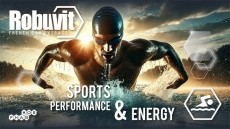Heat hampers beetroot juice's exercise benefits, but not its heart health effects: Australian study

The consumption of beetroot juice — a rich source of dietary nitrate (NO3-) — has been said to produce ergogenic effects during exercise, such as lower blood pressure, greater muscle oxygenation, augmented cutaneous blood flow, and enhanced aerobic efficiency.
However, a high-temperature environment is believed to obstruct these effects.
Based on this, researchers at the University of Western Australia, the Australian Institute of Sport, Edith Cowan University, and the Australian Catholic University carried out a study on whether, after beetroot juice supplementation, environmental heat affects improvements in blood flow distribution, and the possibly related impact on thermoregulation during exercise.
Beet-ing the heat?
They recruited 12 male endurance-trained cyclists between the ages of 27 and 33 and had them undergo three days of supplementation with either beetroot juice or a nitrate-depleted placebo.
The cyclists then had to complete two 60-minute submaximal cycling trials at a power output of 60% of their maximum oxygen utilisation (VO2peak), in hot environmental conditions of 33.3°C to 33.7°C.
Their blood pressure, core temperature, mean skin temperature, cutaneous blood flow, and indices of muscle oxygenation, and oxygen consumption during exercise were measured.
The researchers observed afterwards that salivary nitrate and nitrite levels rose significantly after beetroot juice supplementation by a respective 680% and 890%.
But there were no major differences noted between the intervention group and placebo group in terms of blood pressure, cutaneous blood flow, muscle oxygenation, oxygen consumption, core temperature, or mean skin temperature.
This led them to state that the health benefits and ergogenic effects of beetroot juice intake "may be attenuated when exercise is performed in hot conditions".
Be still, my beet-ing heart
They added, however, that some evidence pointed to heartrate response being reduced during exercise periods exceeding 60 minutes through a possible decrease in afterload (the pressure the heart must work against to eject blood).
They concluded: "Therefore, for the same increase in core temperature, beetroot juice supplementation may lower central cardiovascular strain.
"These findings suggest that while beetroot juice supplementation may not help well-trained athletes regulate their core temperature directly during exercise in a hot climate, the use of this supplement may help regulate heartrate during submaximal exercise in the heat, and may therefore still provide marginal performance gains to certain individuals.
"As such, use of this supplement for competition in the heat should be trialled on an individual basis before any major events."
Source: European Journal of Applied Physiology
https://doi.org/10.1007/s00421-018-3809-z
"Effect of dietary nitrate supplementation on thermoregulatory and cardiovascular responses to submaximal cycling in the heat"
Authors: Georgina L. Kent, et al.



















